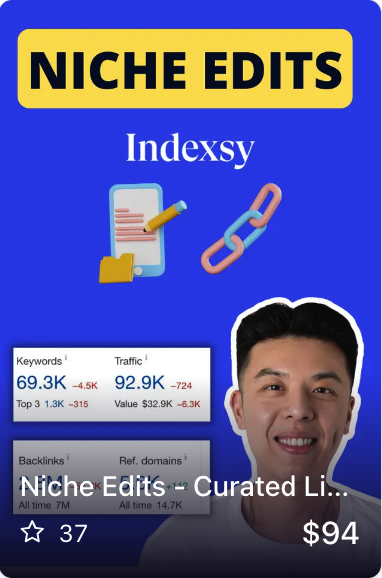AI Keyword Research: How to Use It to Dominate the Competition
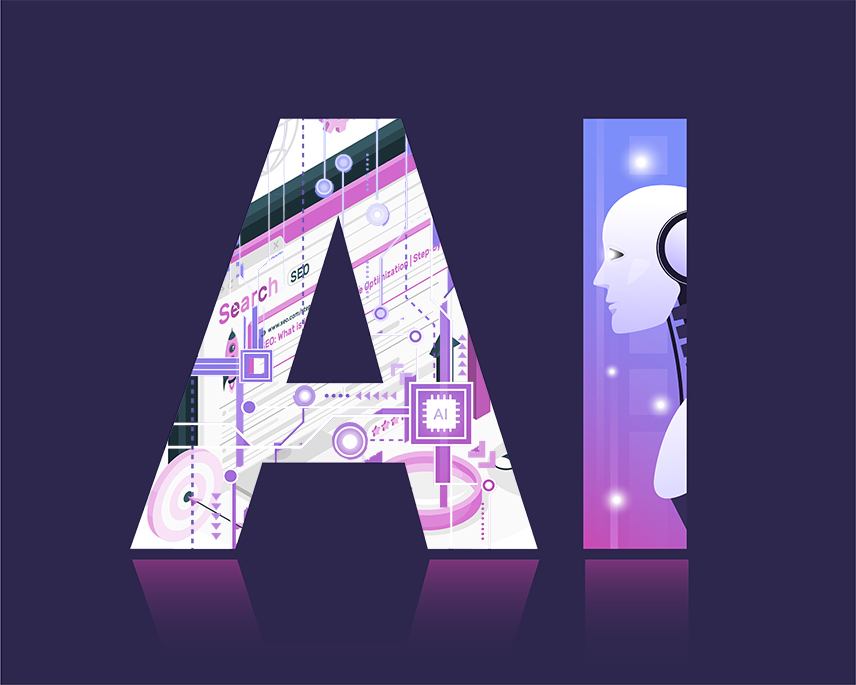
You’ve probably heard a lot about Artificial Intelligence, or AI. It’s a term that gets thrown around a lot, but what does it really mean? Well, it’s not just about machines or software that can learn and solve problems. It’s about a whole new way of thinking, powered by advanced models like Generative Pre-trained Transformers, or GPTs, and innovative algorithms like Google’s BERT that helps search engines comprehend and interpret natural language, resulting in more contextually accurate search results. These technologies are transforming numerous industries, including the field of digital marketing.
Let’s dissect this further. How does this impact you, particularly in relation to your SEO strategy?
Using an AI-driven keyword research tool enhances the keyword research process by providing keyword ideas around related keywords and search volume data. And most importantly, the right keywords because the same technology of large language models (LLMs) used by Chatgpt are used by search engines as well (sort of).
But what does this mean for the world of SEO, and more specifically, keyword research?
Think about the task of doing AI keyword research itself, a crucial aspect of SEO. Traditionally, this process involved manually sifting through data, trying to predict user behavior, and making educated guesses about which keywords might perform well. This method, while effective, was time-consuming and often left room for error. But what if there was a more efficient and accurate way to conduct keyword research?
Now, with AI-based tools, including the best keyword research tool like Google Keyword Planner, this process has become significantly more efficient and accurate. These tools can analyze vast amounts of search data in seconds, provide insights into user behavior, and even predict future trends, making them invaluable for marketers.
So, in what ways can AI enhance the SEO performance of websites and blogs?
Best SEO Services on Vettted
Check out these vetted services to grow your organic traffic.
Understanding The Role Of AI In Keyword Research

Artificial Intelligence (AI) is more than just machines or software. It’s a sophisticated blend of advanced models like Generative Pre-trained Transformers (GPTs) and significant algorithms like Google’s BERT (Bidirectional Encoder Representations from Transformers).
These technologies are reshaping various sectors, including the digital marketing landscape. Google’s keyword planner can help with research to gain valuable insights for digital marketers.
Google’s BERT (Bidirectional Encoder Representations from Transformers), in particular, has revolutionized the way search engines understand and interpret natural language, leading to more accurate search results and increased accuracy of relevant keywords based on the context of the query. But what does this mean for the world of SEO, and more specifically, keyword research?
Consider the task of doing AI keyword research itself, a crucial aspect of SEO. Traditionally, this process involved manually sifting through data, trying to predict user behavior, and making educated guesses about which keywords might perform well. This method of manual research, while effective, was time-consuming and often left room for error. But what if there was a more efficient and accurate way to conduct keyword research?
Now, with AI-based tools, this process has become significantly more efficient and accurate. These tools can quickly analyze vast amounts of data in seconds, provide insights into user behavior, analyze search data, and even predict future trends, making them invaluable for digital marketers. AI can be used to make keyword research more efficient.
But how exactly does AI improve the SEO of websites and blogs?
By incorporating AI in ai keyword research tools, we can enhance the data analysis of websites and blogs, making it easier to generate a keyword list and analyze keyword performance to inform our content strategy., primary keywords, and related keyword phrases and gain a competitive edge. This is where free research tools come in handy, like Google Keyword Research Tools. AI tools help you determine which keywords might be most useful for your website’s SEO and content marketing strategy.
This process often referred to as search engine optimization or SEO, can be significantly improved with the use of machine learning techniques.
Take, for instance, GPT-3, one of the most advanced natural language models used in SEO today. This model is capable of generating text that’s strikingly similar to human writing, which makes it a potent tool for crafting SEO-optimized content. Imagine feeding GPT-3 a seed keyword and asking it to generate a list of related keywords. The result? A comprehensive list of potential keywords, saving you time and uncovering opportunities that might have slipped through the cracks of manual research.
AI is revolutionizing keyword research, providing several advantages, including generating a list of keywords, predictive analytics, and a deeper comprehension of search intent. AI tools also offer quick search results that can inform your content strategy. AI research tools are leading this change. But what does understanding search intent mean, and why is it crucial? and how does AI go beyond just being a machine that mimics human intelligence?
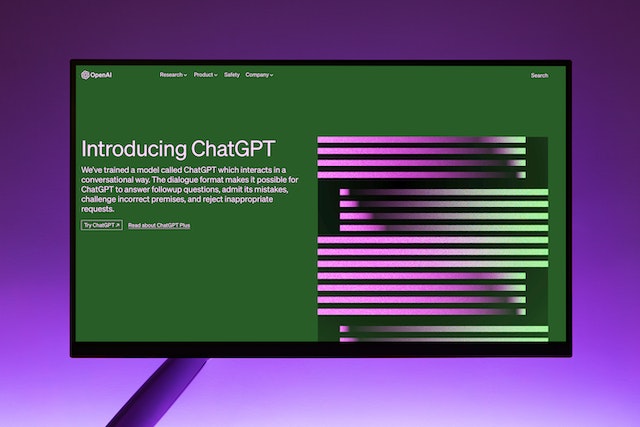
How AI is Revolutionizing Keyword Research?
AI is more than just learning machines or software. It’s an assembly of advanced models reshaping sectors, including digital marketing and content marketing, by providing the fastest and most efficient process.
One of the areas where AI’s influence is most noticeable is keyword analysis, a cornerstone of SEO. Traditionally, keyword analysis involved manually sifting through data, predicting user behavior, and making educated guesses about which keywords that use natural language might perform well. This process, while effective, was time-consuming and often left room for error.
Today, AI-driven keyword tools, including free AI keyword generators, have revolutionized this process. They help with keyword research and can gain valuable insights by analyzing vast amounts of data in seconds.
They have made keyword research significantly more efficient and accurate by analyzing vast amounts of data in seconds, providing insights into user behavior, and even predicting future trends. These capabilities make AI-based keyword tools such invaluable assets for marketers.
AI is transforming the keyword research landscape in several ways. It automates SEO tasks, provides accurate keyword data, and can potentially predict trends based on search volume data. We can uncover hidden ranking opportunities, help you create content, optimize content, and enhance user experience with the help of Google’s keyword planner. These advanced tools can act as keyword generators, offering relevant keyword suggestions for content creation.
They can even help you identify and comprehend search intent, a critical aspect of keyword research that helps you stay ahead of trends.
However, it’s important to acknowledge the challenges and limitations of AI in keyword research. Even the best keyword research tools can be inaccurate or wrong. This highlights the need for human input to interpret data, potential biases in the data, and the complexity of understanding user intent. Despite AI’s impressive progress in understanding and mimicking human language, it’s essential to remember that it remains a tool that requires human oversight and interpretation. And that cannot be stressed enough!
Understanding search intent is paramount in keyword research. It’s not just about finding the right keywords but also understanding why a user might use those keywords and what kind of content they’re seeking. AI’s ability to analyze vast amounts of search volume data and identify patterns can be particularly useful here.
By analyzing user behavior and search trends, AI can enhance search rankings and deepen our understanding of search intent and keyword difficulty. This allows for the creation of content that not only ranks well but also aligns with the needs of your website visitors.
Ultimately, the goal of AI in keyword research is to streamline the process, making it more efficient and accurate. This efficiency enables us to focus less on data analysis and more on crafting high-quality, relevant content. As AI continues to evolve, its significance in keyword research and SEO is expected to grow.
A New Evolution of Optimized Content Creation &
Content Marketing

AI plays a crucial role in content marketing and SEO and content marketing by providing a deeper understanding of language patterns, the context of words used in user search queries, and the estimated monthly search volume. This allows AI to generate valuable insights for content creation, helping marketers optimize their content for search engines and improve user engagement.
This understanding allows AI to generate valuable insights for content creation, helping marketers optimize their content for search engines and improve user engagement.
To make your content more engaging, you can use the ChatGPT prompt: ‘Create click-worthy titles for this article title “_____”.
AI for Keyword Generation and Clustering
AI can make the task of keyword suggestions and identify keywords and keyword metrics that establish topical authority, which helps websites rank higher in organic search rankings. By targeting these high-performing keywords, businesses can improve their SEO strategy and attract organic traffic to their websites, ultimately increasing revenue and brand awareness.
To further enhance this, you can use the ChatGPT prompt: ‘Now write the article in a casual, helpful tone. Insert personal anecdotes if they help illustrate a point. Include H2s and H3s as needed. Expand on key points or add more if needed to hit at least a thousand words.
The Next Frontier in SEO-AI-Driven Keyword Discovery Techniques

AI-driven keyword discovery techniques offer a powerful alternative to traditional keyword research methods. By utilizing machine learning algorithms and advanced data analytics, AI-driven techniques can uncover high-potential keywords that might have been missed by traditional approaches.
These techniques include analyzing search volume, generating long-tail keywords, and identifying related keywords, all of which contribute to the best keyword research. Additionally, utilizing a keyword generator can further provide keyword suggestions and enhance your research process by providing keyword ideas.
Analyzing Search Volume and Competition with AI
AI’s ability to analyze search volume data and competition is a game-changer for keyword research. It can sift through vast amounts of organic search traffic data at lightning speed, identifying high-performing keywords that can give marketers a competitive edge. This allows businesses to optimize their content for search engines and attract more organic traffic.
Actionable Tip: Use AI-optimization tools like SEMrush or Ahrefs to analyze search volume and competition for your target keywords. Then, use this data to optimize your content and improve your search engine rankings.
Generating Long-Tail Keywords with AI
Long-tail keywords, which are highly specific phrases usually indicating a higher purchase intent, can be a goldmine for businesses. AI’s ability to generate these long-tail keywords by analyzing vast amounts of data and recognizing patterns and connections between keywords is a significant advantage.
Actionable Tip: Use AI-optimization tools like AnswerThePublic or LongTailPro to generate long-tail keywords for your target topic. Then, use these keywords to create highly targeted content that can rank higher in search results and attract more targeted traffic.
Identifying Related Keywords & Relevant Keywords with AI
AI’s ability to identify related and highly relevant keywords is another powerful feature that can help marketers create comprehensive content strategies. By understanding the meaning behind keywords and their relationships, AI can provide valuable insights into user intent and preferences, enabling marketers to create content that is more relevant and engaging to their audience.
Actionable Tip: Use AI-optimization tools like LSI Graph or Twinword Ideas to identify related keywords for your target keyword. Then, use these related keywords to create content that covers a broader range of user intents and preferences.
Could AI Revolutionize Keyword Research?

Artificial Intelligence (AI) has already begun to revolutionize the field of keyword research, offering a plethora of benefits that go beyond traditional methodologies. AI-powered keyword research tools not only automate complex tasks but also provide more reliable keyword data, enabling us to outperform competitors and optimize content for better visibility on search engines. Moreover, AI’s predictive capabilities and its ability to identify high-impact keywords in an efficient and effective way allow us to make informed decisions that can significantly enhance any SEO strategy while avoiding keyword cannibalization.
The power of AI in predictive analytics can help digital marketers stay ahead of trends.
But could AI take keyword research to new heights? Could it offer benefits beyond our imagination? The answer is a resounding yes. Here are some ways you can leverage AI with ChatGPT and other software tools today to increase organic search traffic and drive further relevancy:
Efficiency and Accuracy
AI-machine learning data analysis keyword tools like Twinword or SEMrush increase efficiency and accuracy in keyword research. They quickly analyze vast amounts of data and provide relevant results, saving time and effort compared to manual keyword research methods.
For example, you can use the ChatGPT prompt: ‘Help me come up with a topical map based on pillar topics and supporting topics for my blog about (insert niche/ industry/branded term) that has the best chance of helping me rank for long tail keywords that are specific to my primary keyword for (insert your niche here). Give each an engaging title that is click-worthy. Provide me a table with a list of 10 titles in a “titles column.” Prioritize and identify each by the intent of each topic in a column titled “intent.” Next to each title, identify if this is a pillar post topic or supporting post topic, then add a column titled “best long tail keyword phrases” and list the best long tail keyword phrase that that title should be targeting. Do not duplicate keyword phrases.
Predictive Analysis and High-Performance Keywords
AI’s ability to predict future search trends and identify high-performing keywords is another game-changing benefit for SEO strategists, especially when using a keyword planner tool. By analyzing past search trends and recognizing patterns, AI can help us anticipate shifts in user behavior and stay ahead of the curve.
Actionable Tip: Utilize AI tools like Twinword or SEMrush to quickly generate a list of long-tail keywords for a specific topic. Then, leverage ChatGPT to create engaging content around these keywords. For example, you can use the ChatGPT prompt: “Find X Long-tail keywords for ‘Seed Keyword.'”
Advanced AI-Driven Keyword Research Prompts
AI-driven keyword research can also be enhanced with advanced prompts that can help you dig deeper into your keyword strategy. For instance, you can use AI to generate a list of questions that people are asking about a specific keyword. This can help you understand what information people are looking for when they use that keyword, allowing you to create content that answers those questions.
Actionable Tip: Use AI tools like AnswerThePublic or AlsoAsked to generate a list of questions related to a specific keyword. Then, use ChatGPT to create a blog post that answers these questions. For example, you can use the ChatGPT prompt: “Generate a blog post that answers the following questions about ‘AI in healthcare’: [insert questions].”
AI-Powered Sentiment Analysis
AI can also be used to perform sentiment analysis on your content. This can help you understand how your audience might perceive your content, allowing you to make adjustments to better align with your audience’s preferences.
Actionable Tip: Use AI tools like IBM Watson’s Tone Analyzer to perform sentiment analysis on your content. Then, use this information to make adjustments to your content. For example, you can use the ChatGPT prompt: “Analyze the sentiment of my blog post on ‘AI in healthcare’ using IBM Watson’s Tone Analyzer and provide suggestions for improvement.”
By leveraging the power of AI-assisted tools with the capabilities of ChatGPT, authoritative sources, and advanced prompts, we can enhance our SEO strategy, demonstrate expertise, and create high-quality content that resonates with our audience. The future of keyword research is here, and it’s powered by AI.
The Role of AI In Mapping Search Intent
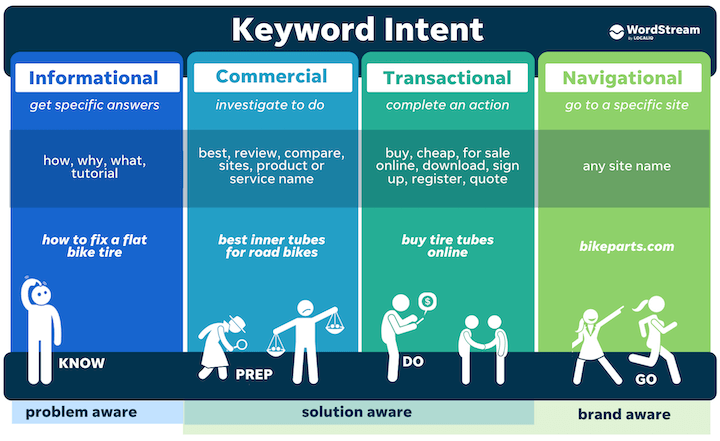
AI plays a role in content marketing and content optimization by understanding language patterns and the context of user queries. This understanding provides insights for content creation, helping optimize content for search engines and improve engagement.
Moreover, AI provides invaluable insights into user behavior, enabling marketers to create highly tailored content that resonates with their target audience. This level of customization significantly enhances the visibility and engagement of the content.
Predicting Search Intent with AI
AI’s ability to analyze search data and identify patterns makes it suited to predicting search intent. By analyzing past user behavior, and search trends, AI can anticipate future search patterns. Popular AI tools can use the search data to help you determine which keywords people are searching for.
Strategy: Use AI-driven keyword research tools to analyze past user behavior and search trends. Use this data to predict future search intents and develop content strategies that cater to these anticipated needs.
Actionable Tip: Leverage ChatGPT with plugins to generate content that caters to predicted search intents. For example, you can prompt ChatGPT with the following request: “Generate content ideas for three blog posts, each targeting a predicted search intent related to (keyword). Provide key subtopics and suggested headings for each post to address the specific intent.”
Prompt: “Generate content ideas for three blog posts, each targeting a predicted search intent related to <target keyword>. Provide key subtopics and suggested headings for each post to address the specific intent.”
By leveraging AI’s predictive capabilities, you can create content that not only meets the current needs of your target audience but also anticipates their future needs, ensuring your content remains relevant and engaging.
AI plays a pivotal role in understanding, mapping, and predicting search intent, making it an invaluable tool in the realm of keyword research. By leveraging AI-driven keyword research tools and strategies, we can enhance our SEO efforts, create more engaging content, and ultimately drive better for your businesses.
AI and User Intent Grouping
AI can group user queries based on intent, providing insights to create targeted content that caters to specific preferences.
Strategy: Leverage AI-assisted tools to analyze user queries and group them based on intent. Use these insights to develop content clusters or topic pillars that address different user intents related to your target keyword.
Actionable Tip: Utilize ChatGPT with plugins to generate content variations that align with specific user intents. For example, you can prompt ChatGPT with the following request: “Generate content ideas for three blog posts, each targeting a different search intent related to (keyword). Provide key subtopics and suggested headings for each post to address the specific intent.”
Prompt: “Generate content ideas for three blog posts, each targeting a different search intent related to (target keyword). Provide key subtopics and suggested headings for each post to address the specific intent.
By incorporating AI-driven user intent grouping into your keyword research and content creation process, you can create targeted content that meets the diverse needs and preferences of your audience, ultimately driving higher engagement and better search engine visibility.
But how can we take this a step further? How can we leverage AI not just to understand and map search intent but also to predict it?
The Future of AI in Keyword Research and Discovery Techniques
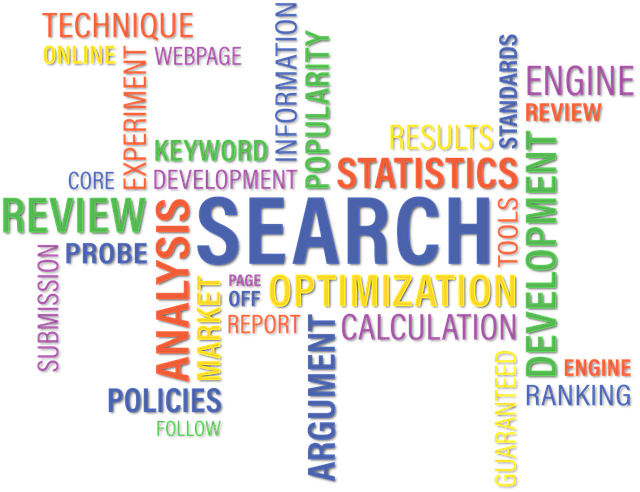
As AI technology continues to evolve, its impact on keyword research is becoming increasingly profound. The development of more sophisticated keyword research tools and a greater influence on SEO strategies are just the beginning. In the future, AI-powered keyword analysis is expected to become more precise, accurate, and data-driven, providing marketers with an unprecedented advantage in optimizing their content and staying ahead of the competition.
Predicted advancements in AI, such as generative AI, increased use in creative processes, and breakthroughs in natural language processing, computer vision, and robotics, will lead to more sophisticated keyword research tools. These tools will help businesses optimize their content and stay ahead of the competition using Google search.
The impact of AI on keyword research is undeniable, making the process more efficient, accurate, and data-driven. As AI technology continues to advance, we can expect to see even more sophisticated keyword research tools that can better analyze search trends, identify high-performing keywords, and optimize content for search engine rankings.
AI’s ability to analyze vast amounts of search volumes and identify patterns makes it uniquely suited to predicting search intent.
AI’s ability to analyze vast amounts of search volumes and identify patterns makes it uniquely suited to predicting search intent. AI tools can quickly process large amounts of data to identify keywords that are currently popular and relevant, allowing digital marketers to stay ahead of trends and determine which ones they should focus on for their SEO strategy.
By analyzing past user behavior and search trends, AI can anticipate future search patterns, allowing us to stay one step ahead of your audience’s needs.
In the future, we might see AI tools that can predict emerging search trends, identify untapped keyword opportunities, and even generate content that perfectly aligns with user intent. The possibilities are endless, and the future of AI in keyword research is undoubtedly exciting.
The Limitations of AI in SEO and Keyword Research

While AI has revolutionized SEO and keyword research, it’s not a magic bullet. There are still limitations and challenges to address.
- Understanding Context: AI has made significant strides in understanding the context of language, but it’s not perfect. There can still be instances where AI might misinterpret the context of certain keywords or phrases, leading to less-than-optimal keyword suggestions.
- Dependence on Data: AI’s effectiveness is heavily dependent on the quality and quantity of data it’s trained on. If the data is biased, incomplete, or irrelevant, the AI’s performance will be affected.
- Lack of Creativity: While AI can generate content and suggest keywords, it lacks the creativity and intuition of a human marketer. It can’t think outside the box or come up with innovative marketing strategies.
- Ethical and Privacy Concerns: The use of AI in SEO also raises ethical and privacy concerns. For instance, how is user data being used? Are there safeguards in place to protect user privacy?
- Cost: Implementing AI-driven SEO tools can be expensive, which might not be feasible for small businesses or startups.
Despite these limitations, the benefits of using AI in SEO and keyword research far outweigh the challenges. As technology continues to evolve, we can expect many of these limitations to be addressed. However, it’s crucial for marketers to understand these limitations and work around them to leverage AI in their SEO strategies effectively.
Natural Language Processing (NLP) and Keyword Research: A Powerful Synergy
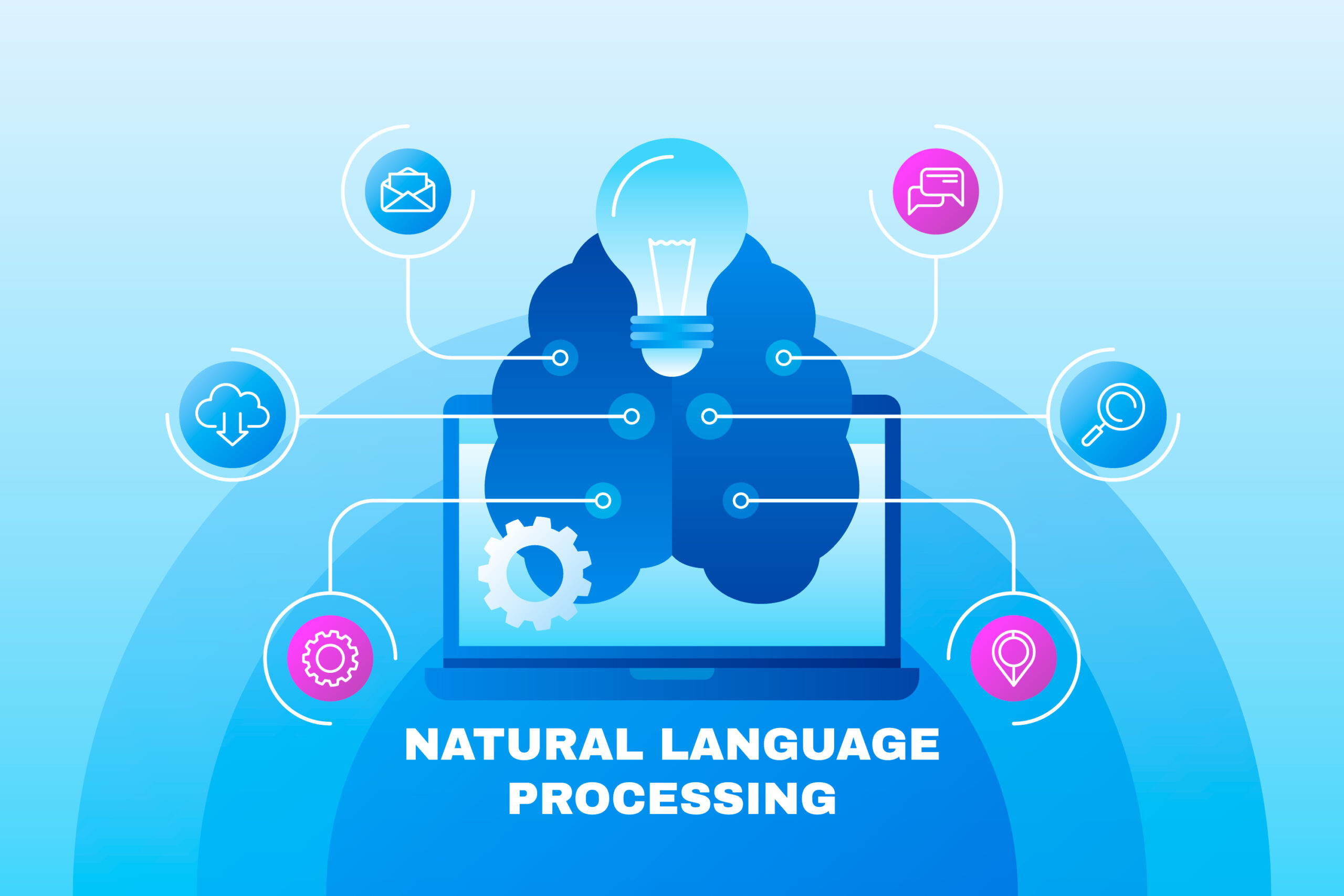
Natural Language Processing (NLP) is a subfield of artificial intelligence that focuses on the interaction between computers and humans through natural language. The ultimate objective of NLP is to read, decipher, understand, and make sense of human language in a valuable way. When applied to keyword research, NLP can offer a wealth of insights that can significantly enhance content creation and search engine optimization.
How NLP enhances keyword research
NLP enhances keyword research by analyzing text and understanding language patterns. This technology can interpret the context of words and phrases, identify the main topics in a piece of content, and even understand the sentiment. By leveraging NLP, content creators can gain a better understanding of how their target audience is searching for information, allowing them to create more effective content that is optimized for search engines.
For instance, NLP can help identify the intent behind search queries, enabling content creators to tailor their content to meet these specific needs. This can result in higher rankings on search engine results pages (SERPs) and increased traffic to your website.
Actionable Tip: Use AI tools like Google’s Natural Language API or IBM’s Watson Natural Language Understanding service to analyze your content and extract insights about entities, sentiment extract keywords, and syntax. You can then use these insights to optimize your content for your target keywords and improve its relevance to your audience.
NLP-powered keyword analysis tools
NLP-powered analysis tools, such as Semrush keyword research tool, Ahrefs free keyword research tool, and Moz Explorer free tool, can provide marketers with more accurate and comprehensive keyword suggestions, improving the efficiency and effectiveness of their keyword research process. Among these, the best keyword research tool may vary depending on individual preferences and needs. However, for those on a budget, a free keyword research tool, which is also a valuable keyword research tool, can be a suitable option.
By leveraging the power of NLP, these tools can help marketers stay ahead of the competition and create content that resonates with their target audience.
Advanced Prompt: Use Google’s Natural AI to analyze a piece of your content and extract insights about entities, sentiment, and syntax. Then, use these insights to generate a revised version of the content that better targets your chosen keywords.
Or, for an alternative, you can prompt ChatGPT with the following request: “Revise the following content to target the keywords ‘AI in Search Engine Marketing,’ using these keywords from my content optimizer (insert terms here is an example): long tail keywords, ai keyword research tools, ai keyword research, ai tools, digital marketing campaigns.
*Remember always to double-check the generated content for accuracy and relevance.
Predictive Analytics in Keyword Research

Predictive analytics, a potent tool that employs historical data, statistical algorithms, and machine learning techniques, can forecast future outcomes. When applied to keyword research, predictive analytics enables marketers to stay ahead of trends, fine-tune their content strategies, and enhance their SEO performance.
Utilizing predictive analytics, marketers can discern the kinds of keywords that will likely yield success in their campaigns. It also allows them to spot new opportunities and fine-tune their content strategies for maximum impact.
How Predictive Analytics Improves Keyword Research
Predictive analytics assists marketers in identifying high-performing keywords, comprehending user intent, and generating content ideas. By staying ahead of trends and predicting market changes, businesses can optimize their content and draw more organic traffic to their websites using tools like Google Analytics.
By harnessing predictive analytics, marketers can gain a deeper understanding of their target audience and craft content that resonates with them. This can help boost their website traffic and generate more leads. Moreover, predictive analytics can be employed for various other purposes.
Tools For Predictive Analytics In Keyword Research
Predictive analytics tools for keyword research, such as Google Trends, SEMrush, and Ahrefs, can aid marketers in analyzing search volume and competition and generating long-tail keywords. These tools can offer valuable insights into user behavior and preferences, enabling marketers to create content that is more relevant and engaging to their audience.
By harnessing these tools, marketers can gain a deeper understanding of an audience and craft content that resonates with them. This can help to increase engagement and conversions, as well as enhance the overall effectiveness of their campaigns.
Final Thoughts
As we’ve explored throughout this post, AI is transforming the landscape of SEO and keyword research. From understanding and mapping search intent to generating and clustering keywords, AI-powered tools are making these processes more efficient and accurate.
However, as with any technology, AI comes with its own set of limitations. Understanding these limitations and finding ways to work around them is crucial for marketers looking to leverage AI in their SEO strategies.
Despite these challenges, the potential of AI in SEO is undeniable. As technology continues to evolve, we can expect AI to play an even more significant role in SEO and keyword research. The future of SEO is undoubtedly AI-powered, and those who adapt to this change will be the ones to reap the benefits.
So, as we move forward, it’s essential for marketers to stay updated with the latest advancements in AI and understand how to incorporate these technologies into their SEO strategies effectively. The future is here, and it’s AI-powered.

Vasco Montiero
Vasco A. Monteiro, hailing from Lisbon, Portugal, and holding a Bachelor’s and Master’s degree in Industrial Engineering and Management from Instituto Superior Técnico, showcases his dedication to search engine optimization beyond his ventures. He runs a successful YouTube channel and manages a private SEO Facebook group, Vasco’s SEO Tips. These platforms allow him to share valuable insights and expertise in the digital world, further solidifying his position as a respected industry leader in the SEO domain.




